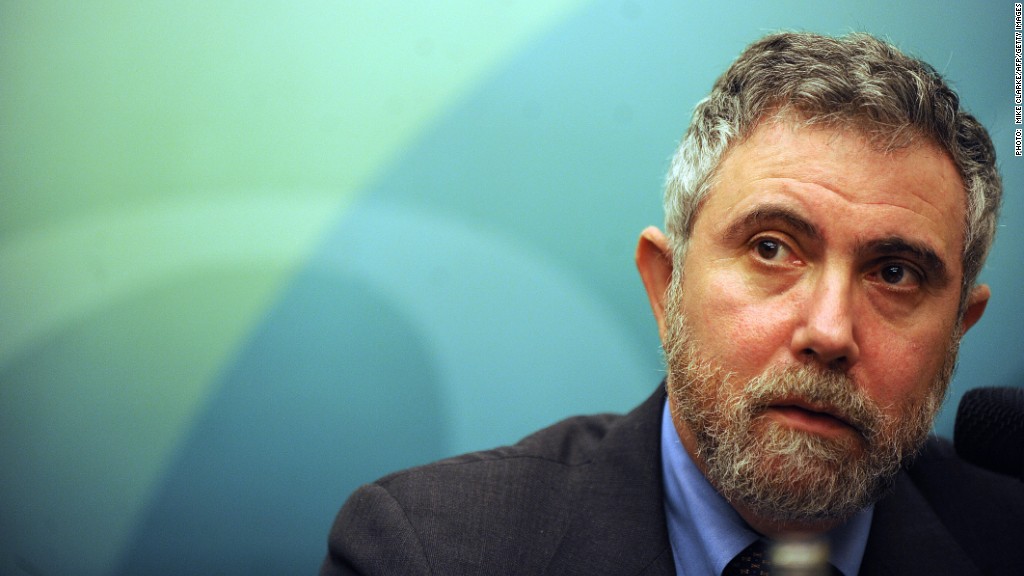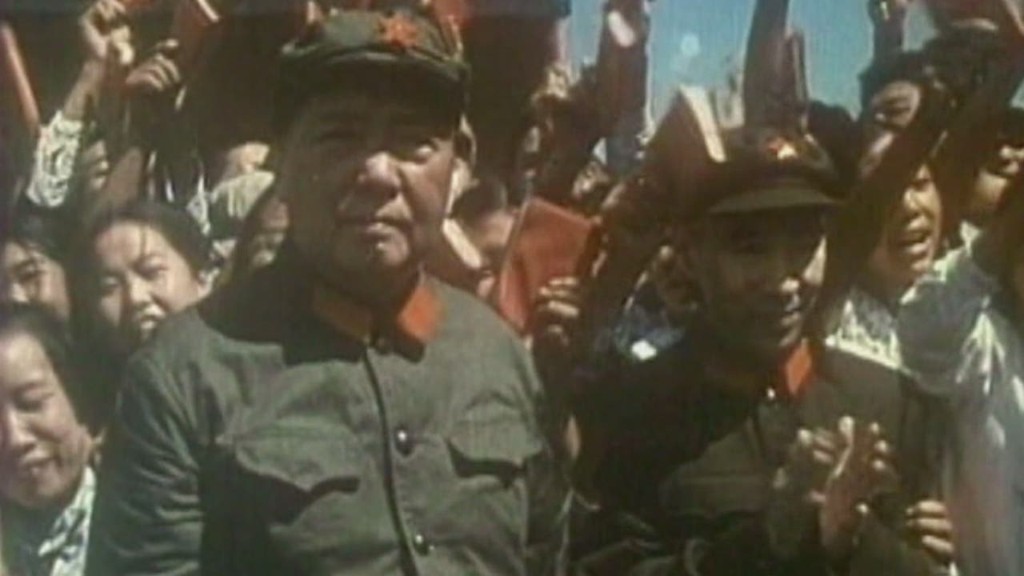
For economist Paul Krugman, the challenges facing China's economy are enough to keep him up at night.
"China scares me," he said Tuesday at the Asian Financial Forum in Hong Kong. "It scares me not because the policies have been wrong or anything, but because of the magnitude of the adjustment."
Krugman said the switch that China needs to execute -- from an economy powered by investment to one driven by consumption -- will be incredibly difficult. And the government needs to do it quickly to avoid a severe downturn, he said.
For decades, China enjoyed double-digit, breakneck growth, at rates that are now seen as unsustainable. GDP growth has waned in recent years, clocking in at 7.4% for 2014 -- the slowest pace in 24 years.
"I would be surprised if there isn't a quite nasty recession as China tries to make a transition," Krugman said. "I think investment is going to fall and it's going to take a while for consumption to catch up. "
How the government manages reforms will be crucial. Here's what Krugman is worried about:
Shrinking work force
One of the biggest challenges is China's demographic crisis, Krugman said, which is partially related to the aftermath of the country's one-child policy.
China has moved tens of millions of workers from rural to urban areas, where they are more productive. But even more labor is needed.
"China has been so successful at growing its modern economy that it's running out of peasants," he said. "The effective labor force, the effective working age population in China is actually slowing."

More consumer spending
Chinese are known the world over for their high savings rates. This habit does wonders for household finances, but the government needs people to open their wallets and spend to boost growth.
Krugman doesn't buy "deep-seated cultural thriftiness" as the problem. "There are policies that can be changed [to encourage spending]," he said.
If Beijing is serious about moving to a more consumption-led economy, the government needs to transfer robust industry profits into laborers' pockets.
Related: The world economy is worse off than the IMF thought
Another possibility is to create a stronger social safety net, which removes the need for citizens to stockpile funds for emergency medical care.
"Having a society where people don't have to stop at the ATM on their way to the hospital would be a society that would consume," Krugman said.
Don't always trust the numbers
Economic indicators don't always tell the full picture, and when it comes to China, many of the numbers are massaged enough that Krugman considers them "fictional." The lack of accurate, timely statistics makes it hard to track China's progress.
"I hate that China has become such an important focus, because the numbers are so hard to analyze," he said.
Still, Krugman is optimistic about China's performance over the long run.
"I think the future still does belong to China, but ... the future is a little bit further out than we thought it was," he said.


